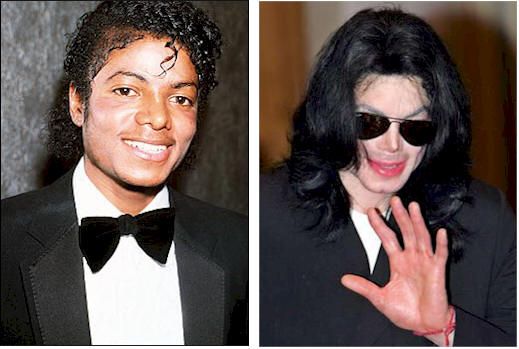Understanding What
Miley Represents: Deconstructing A Decentered Culture
Miley Cyrus as a cultural symbol stands for nothing,
substantiates nothing and ultimately means nothing. In this manner, she is the
most representative of any pop star yet created and nurtured by late stage capitalist American culture.
Un-tethered to any of the modernist values that
moralized and justified a belief system based on once fixed rules, or reacting
in direct relation to or against such a moral belief system (a la punk rock and
generally, counter culture), she represents the first generation raised
entirely in the age of the internet. The constancy previously
represented/broadcast by such institutions as the church, the state and even
the traditional, grounded world of the corporation has had little to no effect
on the Millenials. Yes they are vaguely aware of much of it, and they may even
purport to have religion or a codified and constant center.
What spiritual or constant self could one have, when
pushed and pulled at every angle by advertisements for products, belief systems
and even outward appearances to try on? If identity in a late-stage capitalist
post-modern dominated society is shaped, purchased and created through owning
and displaying products, what “self” can there be? The decentered self testing
the spacial qualities of its world rather than the metaphysical ones is what
we’re left with.
Cyrus is the decentered and ever shifting celebrity
self (without a self), raised by corporate trends, Hollywood handlers, and agents, and steeped and encouraged in her narcissism, self-absorption and fame. Her
behavior has always been cultured and developed behind the scenes in a lab,
always with the public eye in mind. Every move is coordinated and cross-checked
for the marketplace.
She’s the fruition of the post-modern progression of
popular culture that values nothing other than instant gratification, brought
on by capitalist ideology. To say she’s nihilist or apathetic misses the point.
Pop culture itself is not equivalent to nihilism or apathy; it holds few things
sacred, outside of its own referentiallity, self importance, self perpetuation,
money/ownership and the aforementioned impulse to gratify. In a sense then,
these are the new values. Our popular culture, driven by corporate supply and
artificially altered public demand, firmly believes in these as its core
qualities. Those that do not own enough or the right things, are described as “poor”;this is in an economic sense of course, but also implies poor in spirit,potential, and of course poor in social standing. To own things is
to exist and represents active participation in late-stage capitalism, which is
the only way imaginable for those raised within it.
Transposing
and Defining the “I” for the iGeneration
The Millennials lack self because the antiquated
notion of a fixed self ceases to exist in the ultimate gestations of
post-modern culture. The creation of, perpetuation of, and ultimate belief in a
progression of the concept of self, begun in and around the age of Enlightenment,
has now reached its own mirrored-apex in the era of the Millenials and
popularly in Miley Cyrus.
The Enlightenment first conceived of and publicized
the self, as it “sang of [it]self and celebrat[ed] [it]self.” It created laws
to protect and perpetuate the notion of the self (See the Magna Carta, the Bill of Rights and the French Revolution etc.). In part, this was because the individual
self as entity is essential to ownership of personal and private property which
had only recently been borne and fully propagated. The Romantics waxed poetic
about the multitudes held within the soul, or the core and fixed representation
of being, the entity which possesses, profits, creates and owns. In other
words, the entity that is necessary to take part in the capitalist marketplace.
On this same trajectory, Modernism was the next
realization of the self, the next step on the evolutionary ladder. The self
became a distorted and often hazy proposition, a twisted and distorted
refraction of the centered-self dreamed of by Enlightenment era philosophers
and thinkers, but was still based on a center of gravity, a “winding wheel” to rap
oneself around, a comparison point/mile marker with which to judge the
permutations of the different selves of the world. Modernist and high-modernist art often focused on the fragmentation of the self as related to forms of expression, mental illness and the impressionistic qualities of the self and the surrounding world.
In the post-modern era we've seen the end of self, or at least the dissipation of the traditional concept of self. Personal identity is not a fixed proposition or singular belief that comes from an inner being or soul, it's an ever-shifting amalgam of images, socialized concepts, products and other ephemera. Self is now created and distributed for the masses, as a social product that is transmitted electronically.
Come See the Wheels of the Machine Twerk On: "If a body catch a body coming through the iPhone..."

“We
Can’t Stop, We Won’t Stop” then, is the indirect mantra of the helpless and
self-lacking (not to be confused with “selfless”) Millenial culture as it comes
of age and takes possession of its own being. It comes in the language of the
addict, mixed with the belief system of the capitalist. A mélange of apathy and
a pastiche of empty meaning.
In
traditional terms, the “coming of age” represented when one took responsibility
(nee “ownership,” conceptually related to owning property) for one’s actions,
and conceived of a future for the self. But once again, as in the creation of
the concept of the self by the Enlightenment and its relation to property
ownership, the realization and expression of the self is done in the terms of
capitalism, that being one predicated on purchasing and owning property.
Because Millennials have been socialized to own more and at a younger age by
corporate advertisers and society at large, their grabs at self-actualization
only seem more feeble and meaningless. If one already owns property at a young
age, then a transition from adolescence to adulthood represents nothing more
than ownership/control of one’s immediate flesh and blood, or perhaps gaining
more property.
However, one with no self cannot take responsibility
for its own actions. It can only take ownership of products, items and in the
case of the adolescent, one’s own body. Hence the emphasis on the body as a
representation of freedom in young women: what previously had been controlled
and directed by the family, the rules/laws of society (for the under-age), and the
hegemony of men, now comes into its own in a rite of spring. To fetishize
(display and celebrate) one’s own body and act in accordance to one’s own
sexuality for late millennial and iGeneration women is virtually all that is left of the
expression of the self. Much of western society teaches and raises women as sex objects, early
on ones that are controlled and directed by others, so it only makes sense that
the act of having sex or even the open display of sexual qualities for the
first time is a statement of selfhood and control.
The
common Millienial and iGeneration women, those who Miley Cyrus is selling
products to and in theory representative of, do not believe in feminism. The
language and focus of feminism, under its post-structural third wave have
become abstruse and disconnected from the lion’s share of the middle-class
female populace at large. All that remains is the primal and base cry of the
more extreme and reactionary wing of the second-wave feminists as it relates to
sexual control/selfhood and reproductive rights: the right to choose to have
sex, and in be in power of one’s own sovereign body. With no real form of
self-expression outside of owning products, both young men and young women will
opt for sex and the physical body as the closest thing to expressing and
defining a now distant concept of “selfhood” and being.
“We
Can’t Stop, We Won’t Stop” is the rallying cry of a now warped and empty
transition to adulthood inside late-stage capitalism. “It’s our party” as in we
own and control this scenario. We are members of the capitalist marketplace, if
only because we can schlep our body around in ever stranger ways, which then
creates a very base concept of self: the self is my physical body and what I
choose to do with it.

Sadly, Miley Cyrus is our child: collectively the culture’s. We’ve raised, nurtured and encouraged her to be what she is today. We watched her grow on Hannah Montana as a fictional pop-star with multiple personalities, then morph into a real one. She is a product with no actual being to speak of, and her public persona represents nothing in particular. Her wild gesticulations and tongue wagging, are nothing more than an inert replica of the modernist culture that challenged the status quo and the prevailing rules and conservancies of religion, government and the family which held actual meaning in a not-too-distant past world still based on the concept of a centered reality. (Those pangs of guilt towards our freak-child easily confused as a phantom ringtone and then brushed aside.) Our decentered culture represents nothing in particular or of note outside of an affirmation of capitalism and the dissolution of the self, and Miley is its final embodiment.


No comments:
Post a Comment